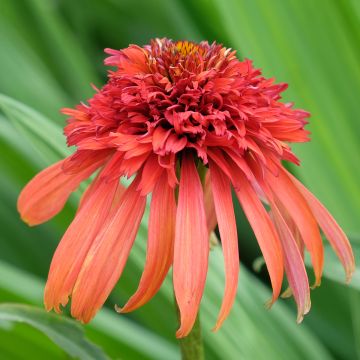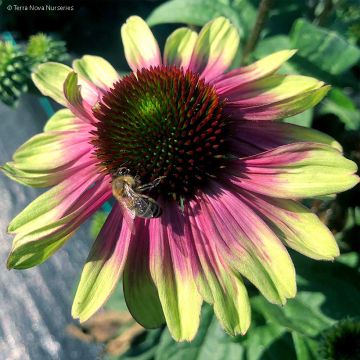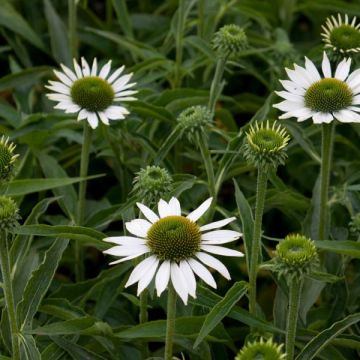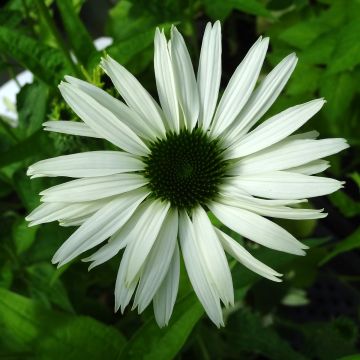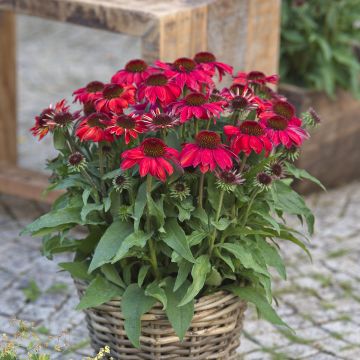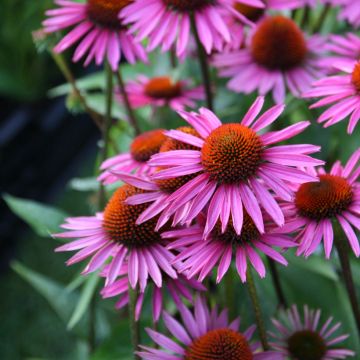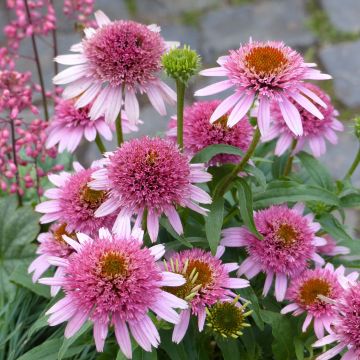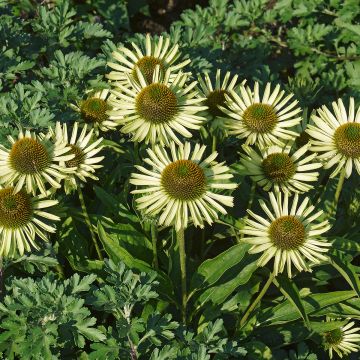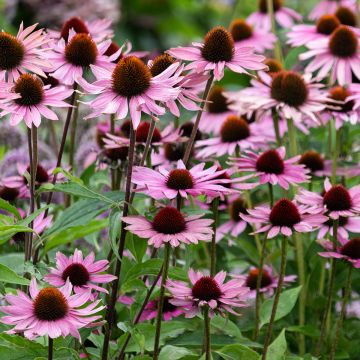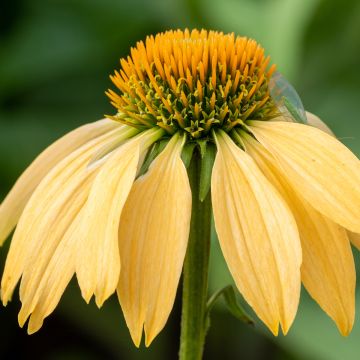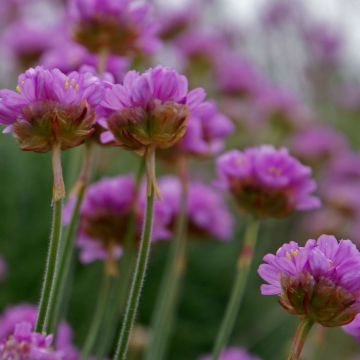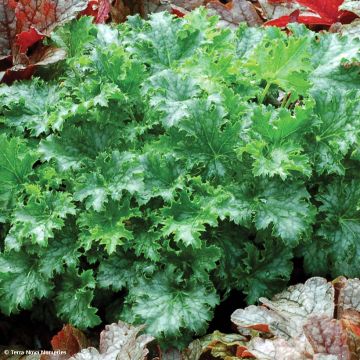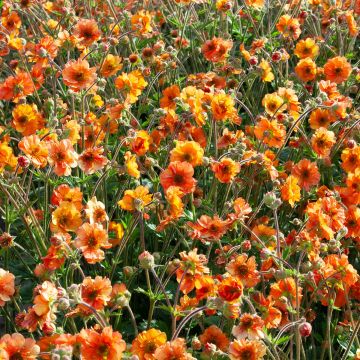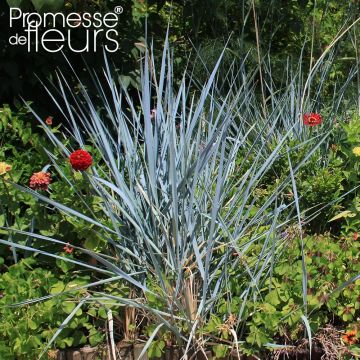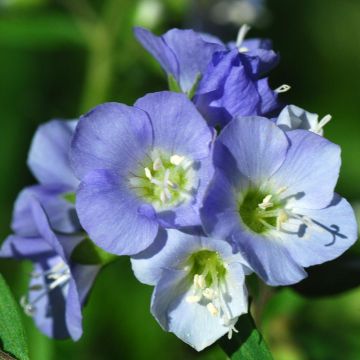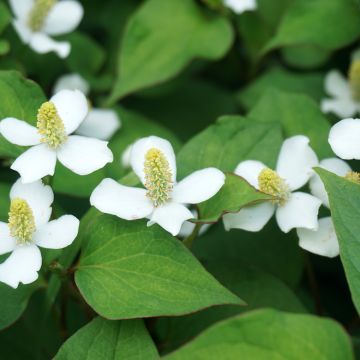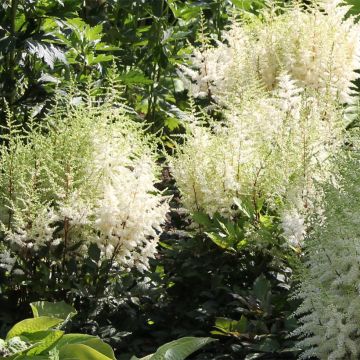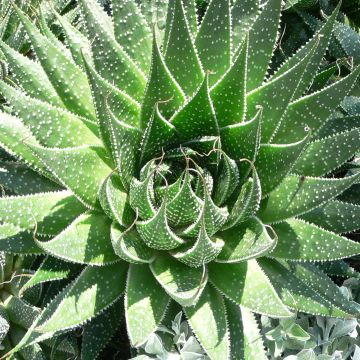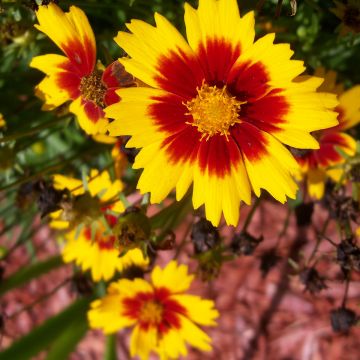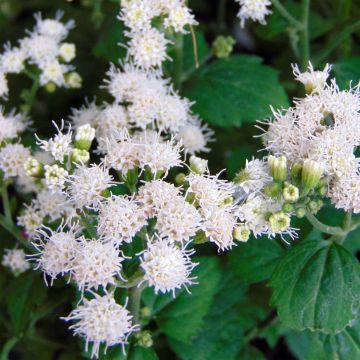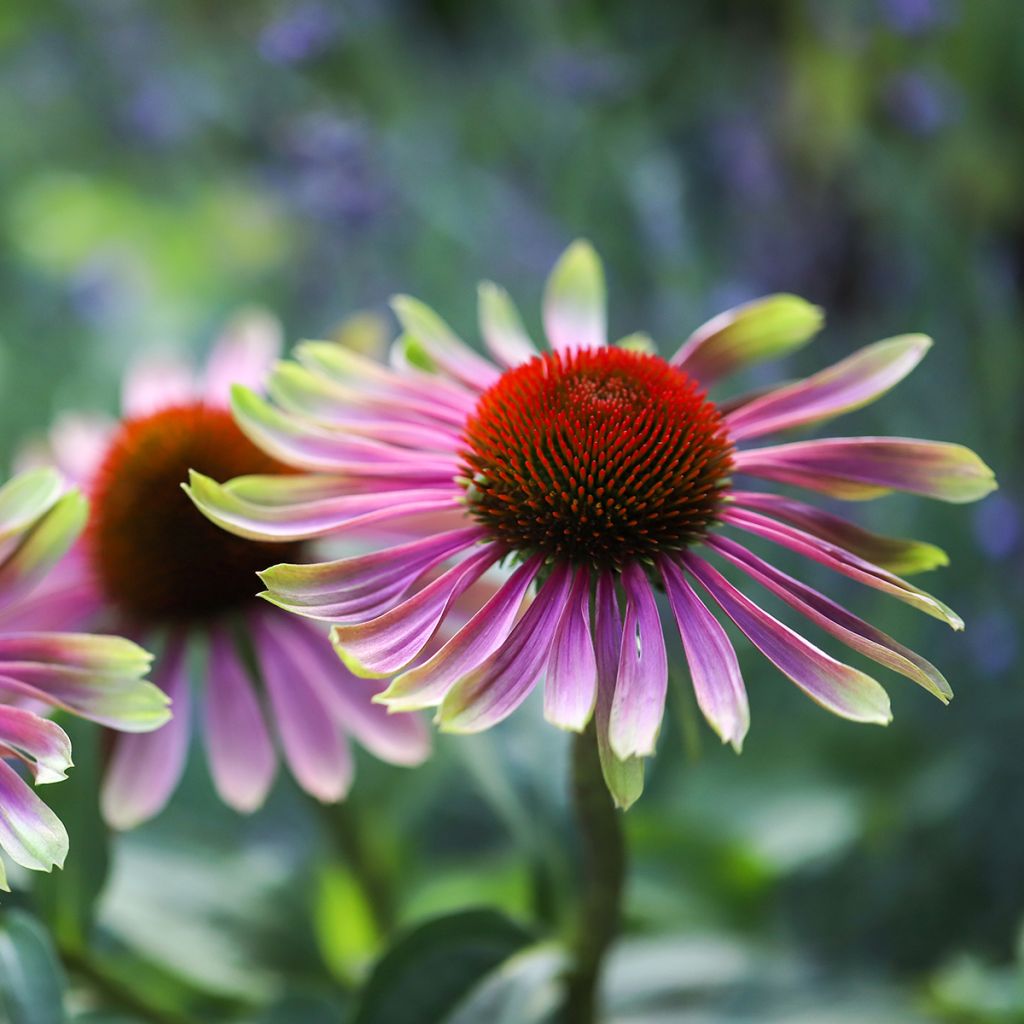

Echinacea purpurea Green Twister - Purple Coneflower
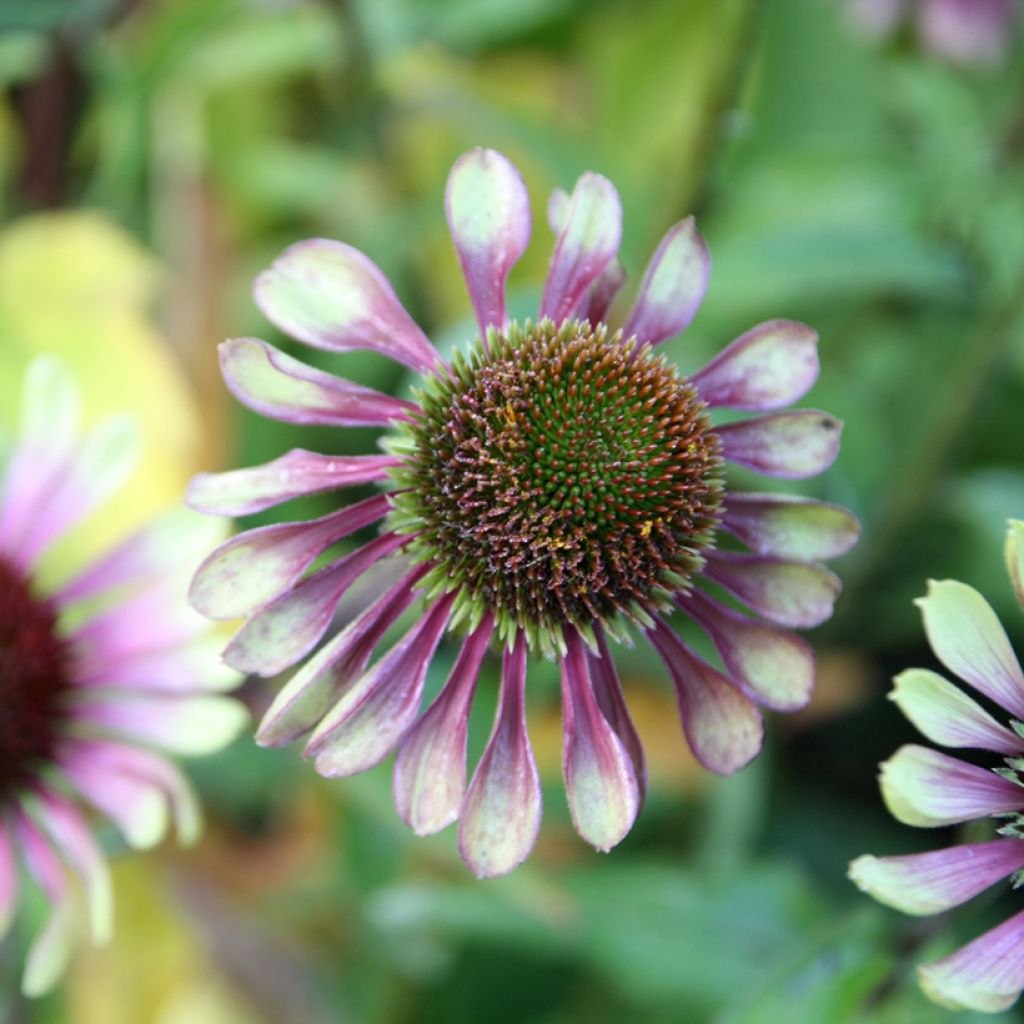

Echinacea purpurea Green Twister - Purple Coneflower
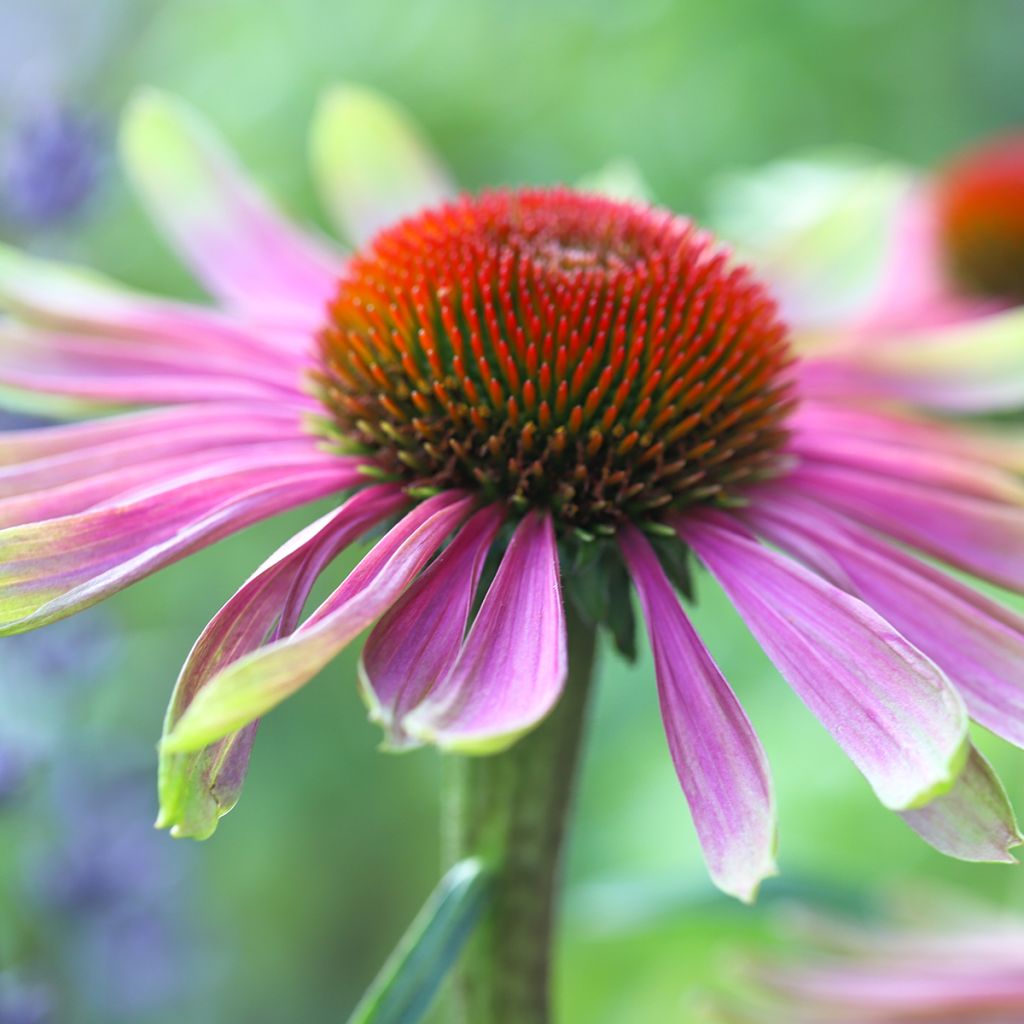

Echinacea purpurea Green Twister - Purple Coneflower
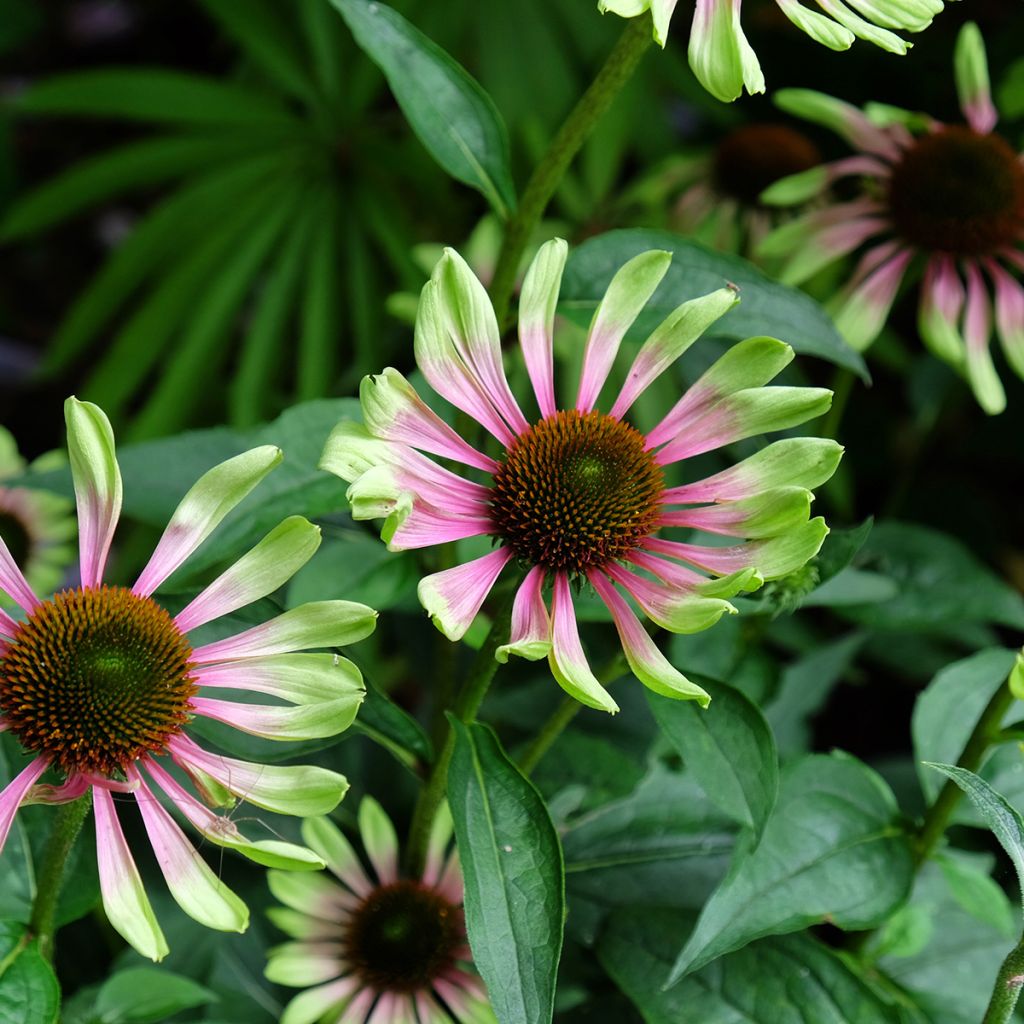

Echinacea purpurea Green Twister - Purple Coneflower
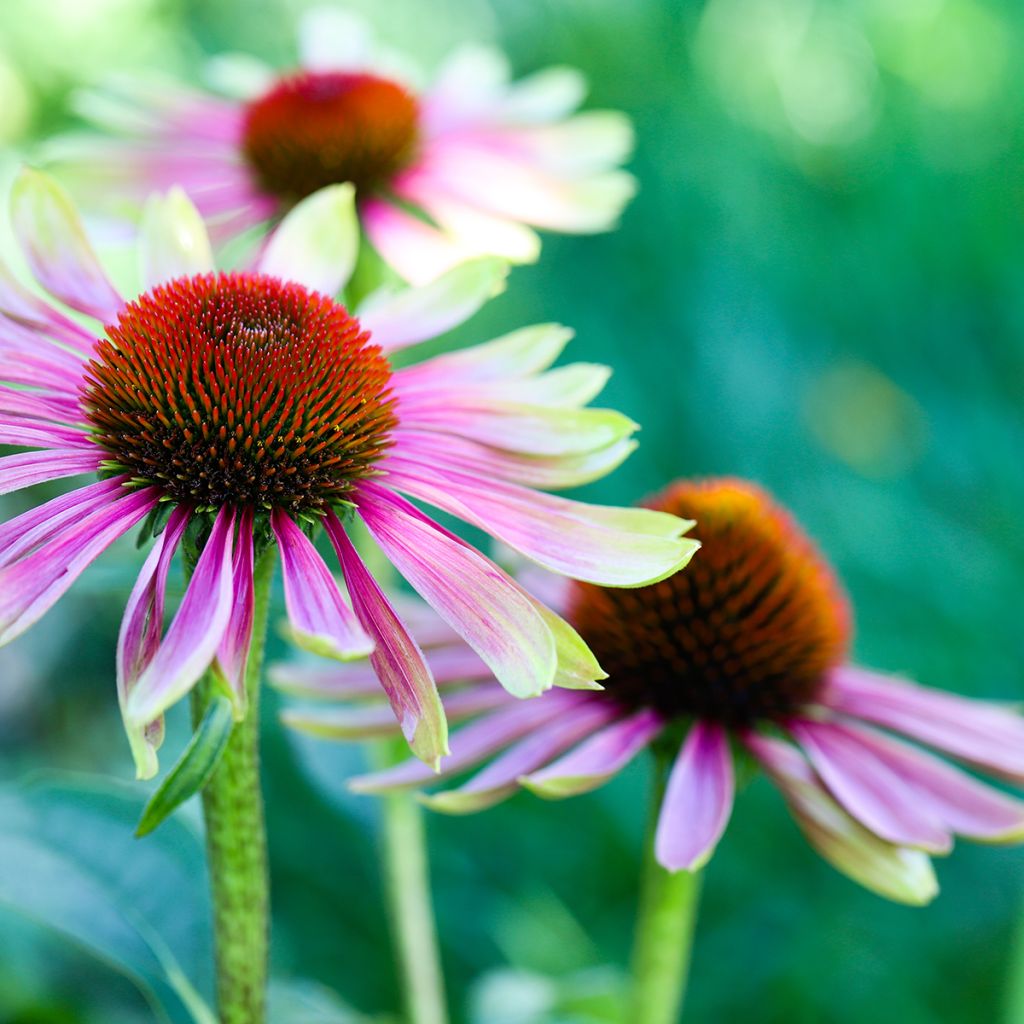

Echinacea purpurea Green Twister - Purple Coneflower
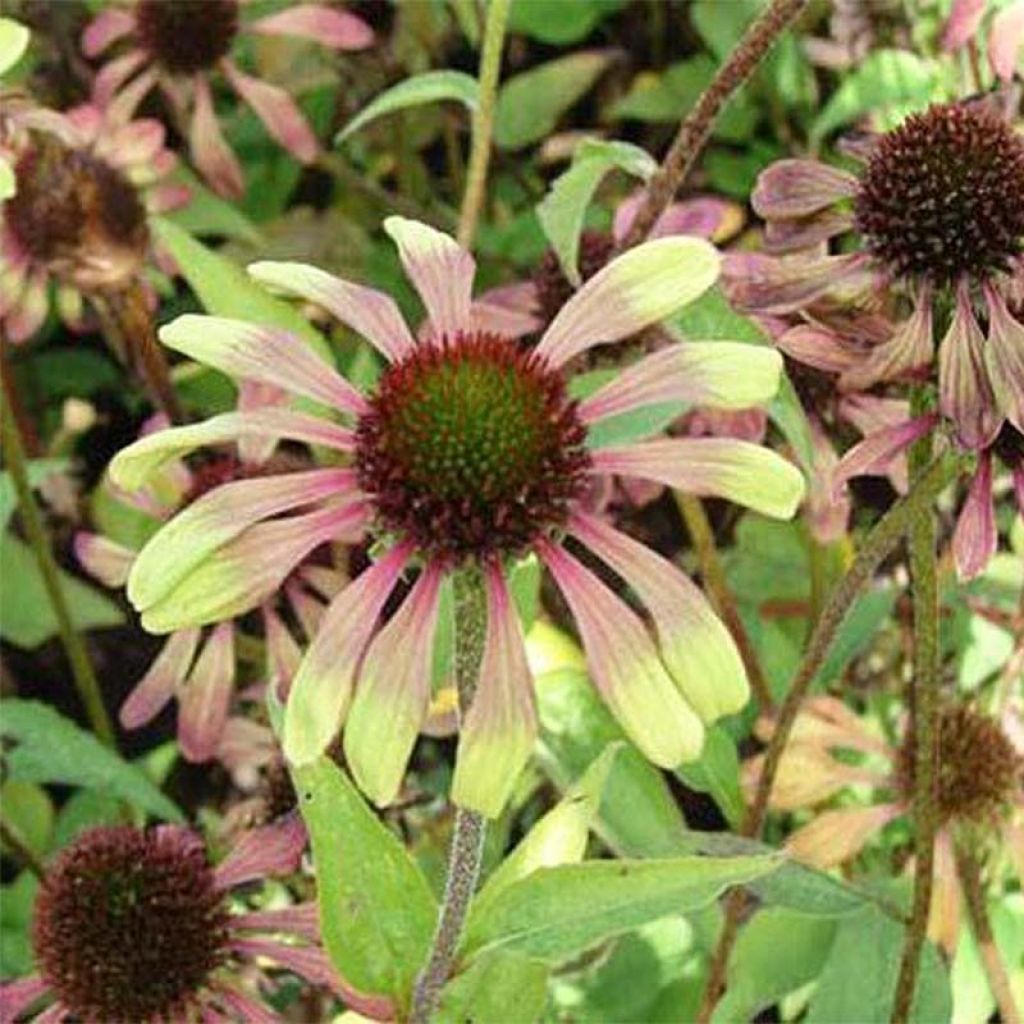

Echinacea purpurea Green Twister - Purple Coneflower
Echinacea purpurea Green Twister - Purple Coneflower
Echinacea purpurea Green Twister
Purple Coneflower, Eastern Purple Coneflower
This item cannot be shipped to the selected country
Delivery charge from €5.90
Delivery charge from €5.90
More information
Schedule delivery date,
and select date in basket
This plant carries a 12 months recovery warranty
More information
We guarantee the quality of our plants for a full growing cycle, and will replace at our expense any plant that fails to recover under normal climatic and planting conditions.
From €5.90 for pickup delivery and €6.90 for home delivery
Express home delivery from €8.90.
From €5.90 for pickup delivery and €6.90 for home delivery
Express home delivery from €8.90.

Does this plant fit my garden?
Set up your Plantfit profile →
Description
Echinacea purpurea 'Green Twister' is a rather fantastic natural mutation of the Rudbeckia 'Magnus', famous for its exceptionally large flowers. But its flowers display a changing, subtle and unprecedented colouration, combining magenta pink, pale green and light yellow around a large brown-red central cone. From its wonderful parent, 'Green Twister' has also inherited vigour, solid growth, and a long summer flowering period. Praised by enthusiasts, this new variety is ideal for cut flowers or drying. It is also a very resistant perennial plant that adapts to difficult conditions, occasionally tolerating intense heat, humidity, and drought.
Native to the western United States, from Georgia to Michigan via Oklahoma and Ohio, Echinacea purpurea is a perennial with a strong character, unlike anything known, but which boldly colonizes rocky meadows, savannahs, clear undergrowth, and roadside edges in its natural habitat. It belongs to the Asteraceae family, and is a cousin of daisies.
'Green Twister' is a form that appeared spontaneously in a seedling of Echinacea 'Magnus', which has larger and longer-lasting flowers than the typical variety. The plant has an erect tufted growth habit, reaching approximately 90cm (35in) to 1m (3ft) in height and 40-50cm (16-20in) in width. Supported by sturdy and robust stems, it does not weaken or collapse, demonstrating very good durability. The deciduous leaves dry out in winter. They are opposite on the stems, lanceolate in shape, green in colour, and covered in rough hairs. The fragrant flowering period extends from July to the end of summer and is highly visited by butterflies. The branched stems, reddish-green in colour, terminate in a large solitary head measuring 15cm (6in) in diameter. It is centered around a prominent disc, resembling a pompom, composed of tiny florets ranging from brown to orange-red. Around the cone, thin, horizontal, slightly curved ligules or petals spread out. The colour of the ligules changes as the heads mature, creating a splendid gradient of pink, green, and yellow throughout the plant. The fruit is an achene that releases seeds that birds enjoy. This plant firmly and deeply anchors itself in the soil with its highly developed root system.
'Green Twister' offers a subtly original flowering display, pleasant to admire in flowerbeds, as well as in vases. It can be paired with other flowers whose shapes contrast (ornamental tobaccos, daylilies, dwarf red hot pokers), or with Inulas, asters, yarrows, daisies, globe thistles, and phlox. Lighten the scene by mixing in some ornamental grasses such as Stipa tenuifolia, Muhlenbergia capillaris... Magnificent in flowerbeds, the beautiful color of the purple Echinacea is also stunning in fresh or dried flower arrangements.
The scent of Echinacea varies depending on the stage of flowering. Initially, when the florets are in an upright crown, the scent is barely perceptible. At full bloom, as the florets droop as if drained of their strength, it exhales a fine honey scent, very attractive to bees, butterflies, and other insects. Once the head is pollinated, the scent takes on a more vanilla note.
Properties: In homeopathy, its root is used to fight colds and strengthen the immune system. These properties were already used by Native Americans. The name Echinacea comes from the Greek word echinos, which means "hedgehog-like" or "like a hedgehog," and acea, meaning "having the shape of," alluding to the hearts of the flowers. Purpurea means "purple."
Report an error about the product description
Echinacea purpurea Green Twister - Purple Coneflower in pictures
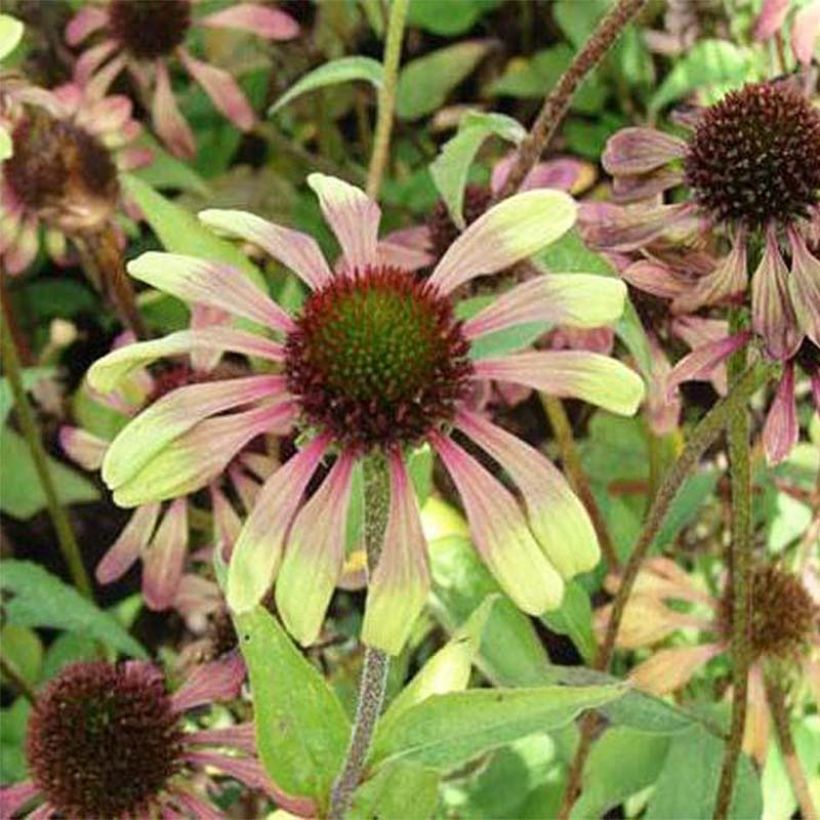

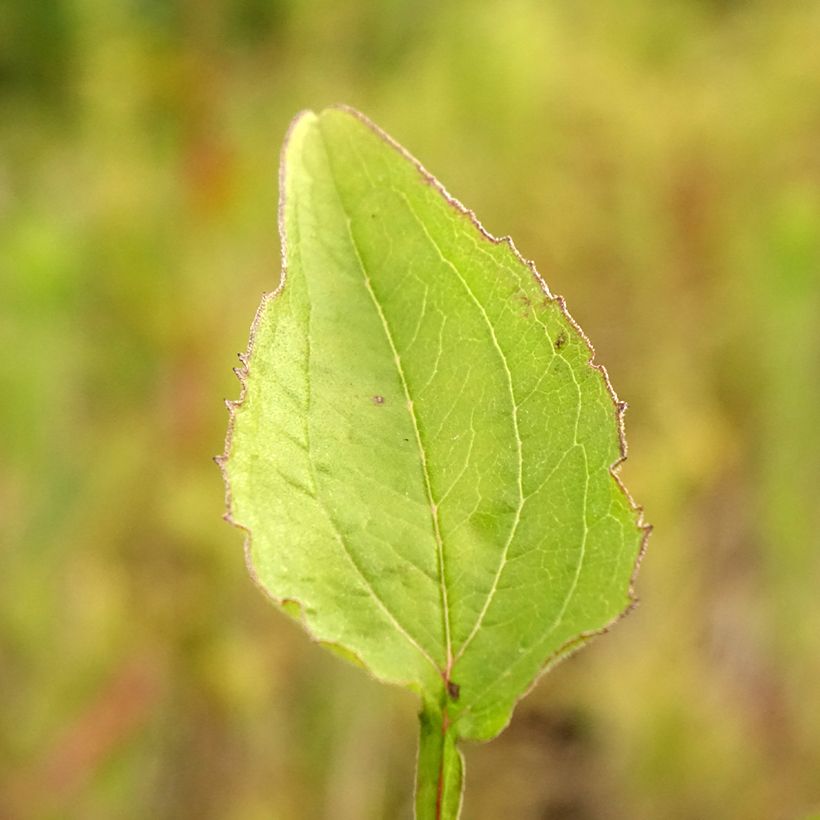

Flowering
Foliage
Plant habit
Botanical data
Echinacea
purpurea
Green Twister
Asteraceae
Purple Coneflower, Eastern Purple Coneflower
Cultivar or hybrid
Other Echinacea - Coneflower
Planting and care
Purple Echinacea 'Green Twister' takes its time to establish; indeed, its growth is rather slow. But in return, once in place, it requires no particular care and is very resistant to pests and diseases. It is preferably planted in spring, in a sunny location, in a mixture of potting soil and garden soil. Echinaceas fear waterlogged soil in winter. The soil must be deep and loose to accommodate its root system. Remove faded flowers as they appear. Divide the clump when flowering slows down. It is a rhizomatous plant that can become invasive if it likes its environment. As the plant ages, it becomes more susceptible to aphid attacks and powdery mildew. Mulch the base in May to keep it cool in summer, as it is sensitive to drought during flowering.
Planting period
Intended location
Care
-
, onOrder confirmed
Reply from on Promesse de fleurs
Summer flowering perennials
Haven't found what you were looking for?
Hardiness is the lowest winter temperature a plant can endure without suffering serious damage or even dying. However, hardiness is affected by location (a sheltered area, such as a patio), protection (winter cover) and soil type (hardiness is improved by well-drained soil).

Photo Sharing Terms & Conditions
In order to encourage gardeners to interact and share their experiences, Promesse de fleurs offers various media enabling content to be uploaded onto its Site - in particular via the ‘Photo sharing’ module.
The User agrees to refrain from:
- Posting any content that is illegal, prejudicial, insulting, racist, inciteful to hatred, revisionist, contrary to public decency, that infringes on privacy or on the privacy rights of third parties, in particular the publicity rights of persons and goods, intellectual property rights, or the right to privacy.
- Submitting content on behalf of a third party;
- Impersonate the identity of a third party and/or publish any personal information about a third party;
In general, the User undertakes to refrain from any unethical behaviour.
All Content (in particular text, comments, files, images, photos, videos, creative works, etc.), which may be subject to property or intellectual property rights, image or other private rights, shall remain the property of the User, subject to the limited rights granted by the terms of the licence granted by Promesse de fleurs as stated below. Users are at liberty to publish or not to publish such Content on the Site, notably via the ‘Photo Sharing’ facility, and accept that this Content shall be made public and freely accessible, notably on the Internet.
Users further acknowledge, undertake to have ,and guarantee that they hold all necessary rights and permissions to publish such material on the Site, in particular with regard to the legislation in force pertaining to any privacy, property, intellectual property, image, or contractual rights, or rights of any other nature. By publishing such Content on the Site, Users acknowledge accepting full liability as publishers of the Content within the meaning of the law, and grant Promesse de fleurs, free of charge, an inclusive, worldwide licence for the said Content for the entire duration of its publication, including all reproduction, representation, up/downloading, displaying, performing, transmission, and storage rights.
Users also grant permission for their name to be linked to the Content and accept that this link may not always be made available.
By engaging in posting material, Users consent to their Content becoming automatically accessible on the Internet, in particular on other sites and/or blogs and/or web pages of the Promesse de fleurs site, including in particular social pages and the Promesse de fleurs catalogue.
Users may secure the removal of entrusted content free of charge by issuing a simple request via our contact form.
The flowering period indicated on our website applies to countries and regions located in USDA zone 8 (France, the United Kingdom, Ireland, the Netherlands, etc.)
It will vary according to where you live:
- In zones 9 to 10 (Italy, Spain, Greece, etc.), flowering will occur about 2 to 4 weeks earlier.
- In zones 6 to 7 (Germany, Poland, Slovenia, and lower mountainous regions), flowering will be delayed by 2 to 3 weeks.
- In zone 5 (Central Europe, Scandinavia), blooming will be delayed by 3 to 5 weeks.
In temperate climates, pruning of spring-flowering shrubs (forsythia, spireas, etc.) should be done just after flowering.
Pruning of summer-flowering shrubs (Indian Lilac, Perovskia, etc.) can be done in winter or spring.
In cold regions as well as with frost-sensitive plants, avoid pruning too early when severe frosts may still occur.
The planting period indicated on our website applies to countries and regions located in USDA zone 8 (France, United Kingdom, Ireland, Netherlands).
It will vary according to where you live:
- In Mediterranean zones (Marseille, Madrid, Milan, etc.), autumn and winter are the best planting periods.
- In continental zones (Strasbourg, Munich, Vienna, etc.), delay planting by 2 to 3 weeks in spring and bring it forward by 2 to 4 weeks in autumn.
- In mountainous regions (the Alps, Pyrenees, Carpathians, etc.), it is best to plant in late spring (May-June) or late summer (August-September).
The harvesting period indicated on our website applies to countries and regions in USDA zone 8 (France, England, Ireland, the Netherlands).
In colder areas (Scandinavia, Poland, Austria...) fruit and vegetable harvests are likely to be delayed by 3-4 weeks.
In warmer areas (Italy, Spain, Greece, etc.), harvesting will probably take place earlier, depending on weather conditions.
The sowing periods indicated on our website apply to countries and regions within USDA Zone 8 (France, UK, Ireland, Netherlands).
In colder areas (Scandinavia, Poland, Austria...), delay any outdoor sowing by 3-4 weeks, or sow under glass.
In warmer climes (Italy, Spain, Greece, etc.), bring outdoor sowing forward by a few weeks.

































